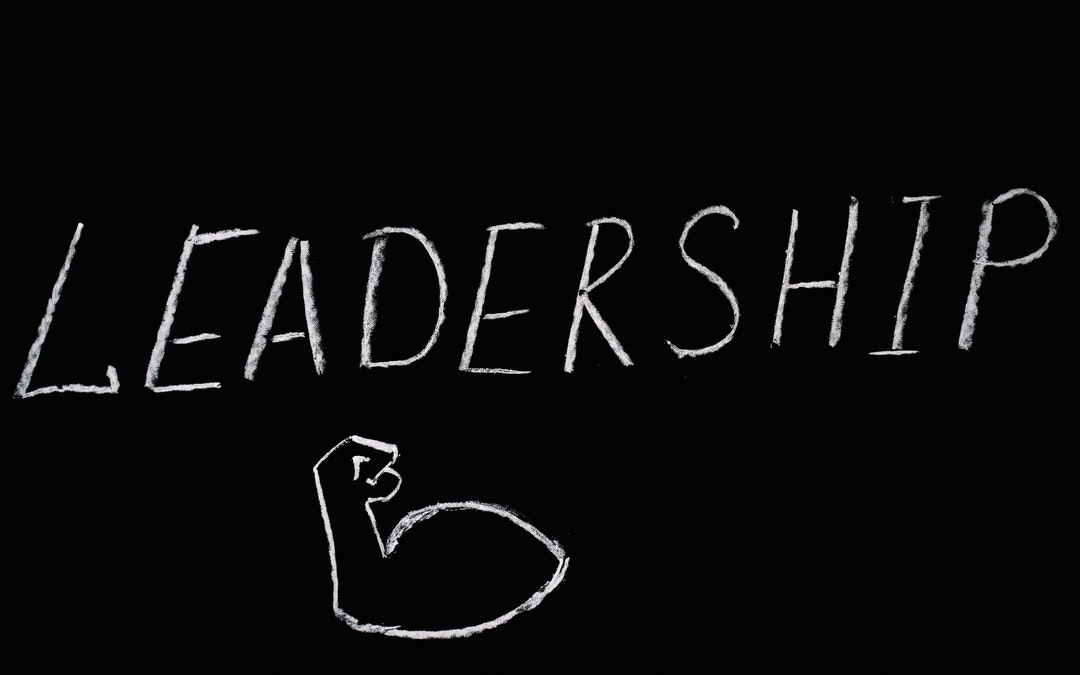Imagine a workplace where every voice matters, where decisions are made collectively, and where each team member’s unique strengths are recognized and utilized. This is the essence of democratic leadership, a powerful approach that fosters participation, openness, and collective problem-solving.
By embracing this leadership style, organizations can unlock their team’s full potential, leading to increased innovation, engagement, and overall success. However, implementing effective democratic leadership requires more than just good intentions – it demands a deep understanding of individual and team dynamics. That’s where tools like the HIGH5 strengths assessment come into play, offering invaluable insights that can supercharge your democratic leadership approach.
In this article, we’ll delve into the world of democratic leadership, exploring its key characteristics, advantages, and real-world applications. We’ll also discover how integrating a strengths-based perspective can elevate your democratic leadership to new heights.
Are you ready to transform your leadership and empower your team? Let’s embark on this exciting journey together.
What is Democratic Leadership? Definition & Meaning
Since its inception, democratic leadership has been used in a variety of different settings, including businesses, governments, and educational institutions.
In recent years, it has also gained favor as a model for online communities and social networks.
When it comes to its uses in organizations, democratic leadership can take several different forms.
In some cases, it may simply involve soliciting input from employees on important decisions. In others, it may give employees a greater say in how the organization is run.
At its core, democratic leadership is about empowering employees and leveraging their collective knowledge to make better decisions. This approach aligns perfectly with the principles of the HIGH5 strengths test, which helps individuals and teams identify their unique strengths. By understanding and harnessing these strengths, democratic leaders can create an environment where each team member’s talents are recognized and utilized effectively. This not only enhances decision-making processes but also fosters a culture of mutual respect and collaboration, key elements of successful democratic leadership.
This type of leader believes that everyone has something to contribute and that by harnessing the power of the group, organizations can achieve more than they would be able to with a traditional hierarchy. Take our leadership assessment test to see your leadership style, strengths and potential.
Pro Tip From HIGH5
Leverage the HIGH5 strengths test to create a strengths map of your team. Use this information to assign roles and responsibilities that align with each member’s top strengths, enhancing the effectiveness of your democratic leadership approach.
Democratic Leadership: Characteristics & Key Quality
The key characteristics of democratic leadership include the following:
1. Openness and communication
One of the key characteristics of democratic leadership is its emphasis on openness and communication. Leaders in this style are always looking for ways to involve group members in the decision-making process, and they place a high value on transparency and collaboration.
2. Collective goal-setting and problem-solving
Democratic leaders believe that collective goal-setting and problem-solving are essential for achieving success. They focus on creating an environment where everyone can contribute their ideas and expertise, and they work together to find solutions to problems.
3. Empowerment and engagement
Democratic leaders empower employees and encourage them to be active participants in the decision-making process. They understand that employee engagement is crucial for success and that giving people a voice motivates them to do their best work. This is where tools like the HIGH5 strengths assessment become invaluable. By helping individuals identify their top strengths, democratic leaders can strategically assign roles and responsibilities that align with these strengths. This not only boosts engagement but also ensures that each team member contributes in areas where they naturally excel, leading to more innovative solutions and higher overall performance.
4. Focus on results
Democratic leaders are results-oriented, and they believe that the best way to achieve success is by working together as a team. They are always looking for ways to improve performance and meet objectives, and they hold everyone in the group accountable for their actions.
5. Flexibility
Democratic leaders are flexible and adaptable, and they are willing to change course if it means achieving better results. They are open to new ideas and different perspectives, and they know that there is no one-size-fits-all approach to leadership.
Pro Tip From HIGH5
Regularly conduct HIGH5 strengths assessments and team-building exercises that focus on strengths awareness. This will help team members better understand and appreciate each other’s unique contributions, fostering a more collaborative and empowered work environment.
List of 10 Qualities of Democratic Leadership
Now that you know what democratic leadership is, it’s important to understand the qualities that are essential for it to be effective.
Here are 10 key qualities of individuals who employ democratic leadership:
- They have a strong sense of purpose and vision: Democratic leaders need to have a clear sense of purpose and vision to guide their group in the right direction. They must be able to articulate their goals and objectives, and they must stay focused on the big picture even when things get tough
- They are good communicators: Good communication is essential for democratic leaders. They need to be able to communicate effectively with group members, and they must be willing to listen attentively to others’ ideas and suggestions
- They are team players: Democratic leaders need to be team players. They must be able to work well with others, and they must be willing to compromise when necessary
- They are open-minded: Open-mindedness is another key quality of democratic leaders. They need to be willing to consider different perspectives, and they must be open to change
- They are inclusive: Inclusive leaders ensure that everyone feels like an integral part of the team. They avoid favoritism and strive to include all voices in the decision-making process. The HIGH5 strengths test can be a powerful tool in this regard, helping leaders recognize and appreciate the diverse strengths within their team. By understanding each team member’s unique talents, democratic leaders can create an inclusive environment where everyone’s contributions are valued and utilized effectively. This approach not only enhances team cohesion but also leads to more comprehensive and well-rounded decisions.
- They are decisive: While democratic leaders need to be open-minded, they also need to be able to make quick decisions when necessary. They cannot hesitate or second-guess themselves, and they must be able to act quickly to achieve their goals
- They are flexible: Flexibility is another important quality of democratic leaders. They need to be able to adapt to change, and they must be willing to modify their plans if it means that the team will be more successful
- They are collaborative: Collaborative leaders know that they cannot do everything on their own. They need to be able to work with others, and they must be willing to share the credit when things go well
- They are coachable: Democratic leaders need to be coachable. They must be willing to listen to feedback and take advice from others, and they must be open to learning new things
- They are supportive: Democratic leaders need to be supportive of their team members. They must be willing to help others when they need it, and they must be willing to encourage and motivate their team when things get tough
These are just a few of the qualities that are essential for democratic leadership to be effective. If you want to be a successful leader, you must work on developing these qualities.
Pro Tip From HIGH5
Use the HIGH5 strengths test results to identify potential areas for leadership development within your team. Encourage team members to take on leadership roles in projects that align with their top strengths, nurturing future democratic leaders in your organization.
Democratic Leadership Example
Some of the best practices and uses of democratic leadership include:
- Encouraging communication and collaboration: A key advantage of democratic leadership is its emphasis on communication and collaboration among team members. This approach, when combined with insights from the HIGH5 strengths assessment, can be particularly powerful. For instance, a leader might use the HIGH5 test results to identify team members with strong communication skills or natural collaborative tendencies. By leveraging these strengths, the leader can facilitate more effective group discussions, break down silos, and significantly boost productivity. Moreover, understanding each team member’s strengths allows for more targeted and meaningful interactions, further enhancing the collaborative spirit that democratic leadership aims to foster.
- Promoting creativity and innovation: By giving team members a voice, democratic leadership can help to promote creativity and innovation. This can be especially helpful in fast-paced or high-pressure environments
- Building trust: When team members feel that they are being heard and their voices are respected, it can help to build trust. This can be important for creating a positive work environment and fostering cooperation
Overall, democratic leadership can be a valuable tool for organizations looking to improve communication, teamwork, and productivity. It is effective in a variety of settings and can help to promote creativity and innovation.
Additionally, it can help to build trust among team members, which can be beneficial for both the individual team members and the organization as a whole.
Pro Tip From HIGH5
When implementing democratic decision-making processes, use the insights from the HIGH5 strengths assessment to structure your approach. For instance, involve team members with analytical strengths in data interpretation, while those with strong communication skills can present findings to the group.
Best Jobs For Democratic Leadership
The following are some careers that lend themselves well to the use of democratic leadership:
- CEO: Being the person at the top of an organization, the CEO has a unique perspective and responsibility. They must be able to make decisions that will impact the entire company. To be successful, CEOs need to be able to motivate and inspire those around them
- Senior Manager: A senior manager is responsible for overseeing a team or department within an organization. They must be able to effectively communicate with their team and provide guidance when needed. Additionally, senior managers must be able to make decisions that will impact the team or department they are responsible for
- Marketing Director: As the person in charge of marketing for an organization, the marketing director must be able to develop and implement strategies that will promote the company’s products or services. They must also be able to work with other members of the team to ensure that the marketing goals of the organization are met
- Sales Director: The sales director is responsible for developing and implementing sales strategies for an organization. They must be able to work with their team to achieve sales targets and grow the business. Additionally, the sales director must be able to build relationships with potential customers
- Product Manager: The product manager is responsible for creating and managing a product or products for an organization. They must be able to identify market needs and develop products that meet those needs. Additionally, the product manager must be able to manage a team of engineers and designers to bring their products to market
Democratic Leadership Advantages and Disadvantages
Every leadership style has advantages and disadvantages when it comes to running a group or organization.
Here are some of the pros and cons of democratic leadership.
List of 5 Pros of Democratic Leadership
- Employees feel more engaged and motivated when they have a say in how things are done, a core principle of democratic leadership. This engagement can be further amplified by incorporating the HIGH5 strengths assessment into the leadership approach. By identifying and acknowledging each team member’s unique strengths, democratic leaders can create opportunities for individuals to contribute in ways that align with their natural talents. This not only increases engagement but also enhances the quality of input in decision-making processes. For example, a team member with a strength in strategic thinking might be encouraged to lead brainstorming sessions, while someone with strong relationship-building skills could facilitate team discussions. This strengths-based approach within the democratic leadership framework leads to a more empowered and motivated workforce, driving both individual and organizational success.
- The democratic leadership style fosters creativity and innovation as employees are encouraged to share their ideas
- Decision-making is quicker as there is no need for consensus among leaders
- This style of leadership can result in better team morale and commitment as everyone feels like they are working towards a common goal
- It encourages open communication which can help to build trust within the team
List of 5 Cons of Democratic Leadership
- The democratic leadership style can lead to indecision if there are too many people involved in the decision-making process
- There may be conflict within the team if different members have opposing views on what should be done
- Some employees may take advantage of the situation and try to manipulate the leader into making decisions that are not in the best interest of the team or company
- Not all employees may be comfortable with sharing their ideas in a group setting
- This style of leadership can be time-consuming as everyone needs to have a chance to voice their opinion
Pro Tip From HIGH5
To mitigate the potential for indecision in democratic leadership, use the HIGH5 strengths test to identify team members with strong decision-making abilities. These individuals can help guide the group towards consensus when discussions become prolonged.
Who Is a Good Example of a Democratic Leader?
While you might know some good examples of democratic leaders in your personal life, you might be wondering who some notable historical figures are that fit this description.
Here are a few examples of famous democratic leaders:
- Abraham Lincoln: Abraham Lincoln was the 16th president of the United States and is widely considered one of the greatest presidents in American history. He is known for his leadership during the Civil War and his work to abolish slavery. Lincoln was a strong believer in democracy and worked to ensure that all citizens had equal rights
- Winston Churchill: Winston Churchill was the Prime Minister of the United Kingdom during World War II. He is known for his inspirational speeches and his leadership during one of the darkest periods in British history. Churchill was a strong advocate for democracy and fought against fascism and tyranny throughout his career
- Franklin D. Roosevelt: Franklin D. Roosevelt was the 32nd president of the United States and is considered one of the most influential presidents in American history. He is best known for his New Deal policies which helped to pull the United States out of the Great Depression. Roosevelt was a strong believer in democracy and believed that it was the best form of government for America
These are just a few examples of famous democratic leaders. Many others could be added to this list.
Bonus: What Is the Core & Main Role of a Democratic Leader
Democratic leadership can be a very good way to lead people. Everyone needs to have their say and have input on how things are done so that it feels like they are part of the team.
Democracy gives everyone a say, and it ensures that the leader is accountable to the people.
The main role of a democratic leader is to make sure that everyone has a voice and that they are being heard. The leader must also be responsible for making decisions that are fair for everyone.
They need to be able to compromise and work with others to come up with the best solution possible.
Origin of Democratic Leadership
Researcher Kurt Lewin helped elaborate on the benefits and value that groups can bring to organizations and leadership.
Lewin’s work was groundbreaking in that it shifted the focus from individual leaders to group dynamics and how groups interact.
One of his most famous studies, the “T-Group” or training group, found that people learned more effectively when they were placed in a situation where they had to solve problems together.
From this research, Lewin developed the idea of democratic leadership, which he described as a “leadership style in which all members of the group participate equally in decision-making.”
This type of leadership is based on the belief that everyone has something valuable to contribute, and that the best decisions are made when all voices are heard.
5 Amazing Books That Encourage Democratic Leadership Style
The following are some books to consider if you’d like to know more about being a democratic leader.
The Spirit of Democracy: The Struggle to Build Free Societies Throughout the World Paperback, Larry Diamond
In 1974, three-quarters of the world’s nations were dictatorships; presently, more than half are democracies. However, recently democracy has been facing a backlash in various countries.
The Spirit of Democracy examines why some countries succeed in establishing and maintaining democratic societies while others do not, and looks at the implications for democracy’s future.
Ill Winds: Saving Democracy from Russian Rage, Chinese Ambition, and American Complacency Paperback, Larry Diamond
Understanding how the past three decades have brought us to various dark moments is essential to mounting an effective defense of our democracy.
In Ill Winds, Larry Diamond dissects the rot that has set in and identifies the forces-both domestic and foreign that are fanning the flames.
How Democracies Die, Steven Levitsky
Having spent more than twenty years studying democracies in Latin America, Africa, Eastern Europe, and the Middle East, Steven Levitsky offers a new definition of democracy and identifies four key threats to it: weakening of party systems, erosion of civil society, the decline in the quality of journalism, and the rise of authoritarian populists.
Polyarchy: Participation and Opposition, Dahl
Looking at society from both a young and an old person’s perspective, Polyarchy considers a series of questions: How do we become mature and reasonable persons able to participate effectively in social life?
What are the obstacles-internal and external such as maturation? Is it possible for all citizens to participate fully in government?
Democracy in America, Alexis de Tocqueville
Being one of the most often quoted books in American political thought, Alexis de Tocqueville’s Democracy in America is a detailed analysis of how democracy worked in early America.
It’s a must-read for anyone interested in understanding the history and principles of democracy.
Frequently Asked Questions About Democratic Leadership
What is the importance of a democratic leadership style?
Democratic leadership is important because it allows team members to have a say in how the team is run. This type of leadership encourages creativity and innovation, as team members are allowed to share their ideas and suggestions. Additionally, democratic leadership builds trust and respect among team members, as everyone has a voice that can be heard.
Is democratic leadership the best style of leadership?
There is no one “best” style of leadership – each style has its advantages and disadvantages. That being said, democratic leadership can be an effective style of leadership, particularly in situations where creativity and innovation are valued. Additionally, this style of leadership can help build trust and respect among team members. Take a free leadership style quiz to determine your leadership traits and approach.








